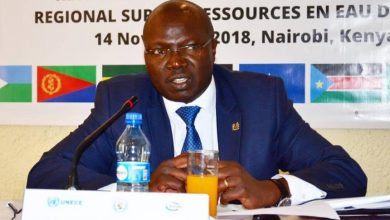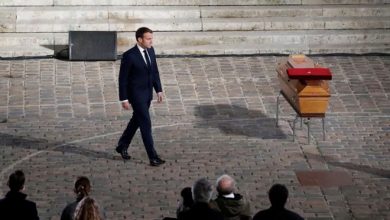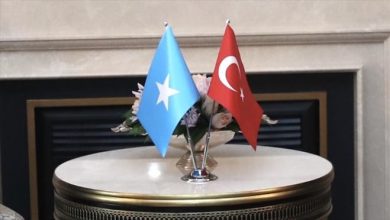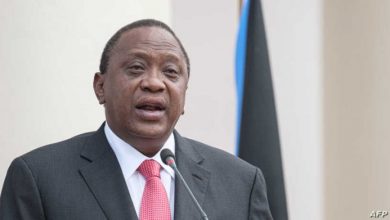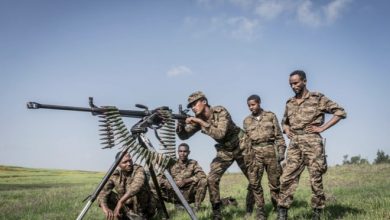Uganda Awaits UN Compensation Six Years After UPDF Chopper Crash
Uganda Awaits UN Compensation Six Years After UPDF Chopper Crash
On August 12 this year, it will be six years since three UPDF choppers crashed over Mt Kenya en-route to Somalia and left seven soldiers dead.
Since then, many changes have happened but the one thing that has remained unclear is whether Uganda will ever be compensated by the UN for the loss.
The air force officers who were sacked by President Museveni over the incident, have been redeployed and are serving in more senior positions.
Lt Gen Jim Owoyesigire, who was sacked from the position of Commander of Air Force, is now commander of all 20,000 Amisom troops in Somalia.
Amisom troops are from five countries of Uganda, Kenya, Djibouti, Ethiopia, and Burundi.
Brig Moses Rwakitarate, the former Air Force Chief of Staff, is now Uganda’s Military Adviser to the European Union in Brussels.
Without choppers, the Ugandan troops continue operating under difficult conditions. The injured cannot be quickly evacuated from the frontline.
Lack of attack helicopters has made it difficult for the UPDF troops to chase the fleeing enemy that is highly mobile and light.
The army says America has offered five utility choppers that will soon be deployed, but combat helicopters are still very much needed.
Brig Richard Karemire, the army spokesperson, says they are still pushing to have the UN replace the crashed assets. “We are still pushing,” he said.
Despite the delay, Brig Karemire says, they are optimistic that UN would compensate Uganda.
UN’s role
United Nations provides logistical support and reimburses all African countries with troops in Somalia for wear and tear of their weapons used in the fight against the al Shabaab.
The Global Arms Transfer Expert Organisation, SIPRI, in its arms transfer database, shows that Uganda acquired three Mi-24 helicopters that were updated to the Mi-24PN mode before delivery in an estimated $10 million (Sh36 billion) deal.
The wreckages of these force enablers that were bought during the war against Lord’s Resistance Army rebels in northern Uganda and South Sudan are rotting away in Mt Kenya.
Brig Karemire says it was not necessary to remove the wreckage from the mountains. “Would it be worthwhile?” he asked.
The crash was not only a big blow to the operations against al Shabaab, it also seriously impacted the UPDF’S young Air Force.
As the negotiations continue, there is little hope that Uganda would be compensated because the UN insists that the choppers crashed before reaching the area of operation.
But also, their issues of negligence on the side of the UPDF, despite a heated argument between some Air Force officers and an American flight engineer, who was working with the UN at that time.
The American was flying in the M17 then flown by Maj Okidi, who safely landed in Wajir, northeastern Kenya. Okidi has since been appointed presidential pilot and promoted to the rank of Colonel.
Mistake
According to the sources, the helicopters were supposed to fly around Mt Kenya, not directly over the mountain.
They flew well between Soroti Flying School and Nanyuki, but could not negotiate the 17,000-foot altitude of Mt Kenya between Nanyuki and Garissa.
The Mi-24 is designed to fly at altitudes no higher than 12,000 feet. It was, therefore, hard for it to fly over Mount Kenya.
There were reports that Maj Okidi managed to fly over the mountain because Mi-17 is bigger and could handle such heights.
Other sources say when the American insisted, he flew around the mountain, not directly like the MI-24s did.
After the crash, the army gave bad weather as the cause of the crash. But President Museveni dismissed the reason.
He mentioned “acts of negligence” and “high-handedness” as the cause of the crashes that resulted in such losses of military equipment.
“I cannot listen to stories of bad weather on the mountain. Mountains are clearly shown on the maps. We never fly over mountains with helicopters, especially combat ones,” he later said.
President Museveni later appointed Gen Salim Saleh as chief adviser on defence, to head an investigation.
However, details of the report have never been made public. It is said President Museveni used the report to sack Lt Gen Owoyesigire and Brig Rwakitarate.
Sources say it was an unprecedented catalogue of mistakes, inexperience and bad orders from commanders that could have been the most likely causes of the triple helicopter crashes.
A Kenyan newspaper also reported that contrary to well established international aviation rules and regulations, the pilots of Uganda’s three ill-fated Mi-24 attack helicopters that crashed in the Mt Kenya ranges were communicating in Luganda.
